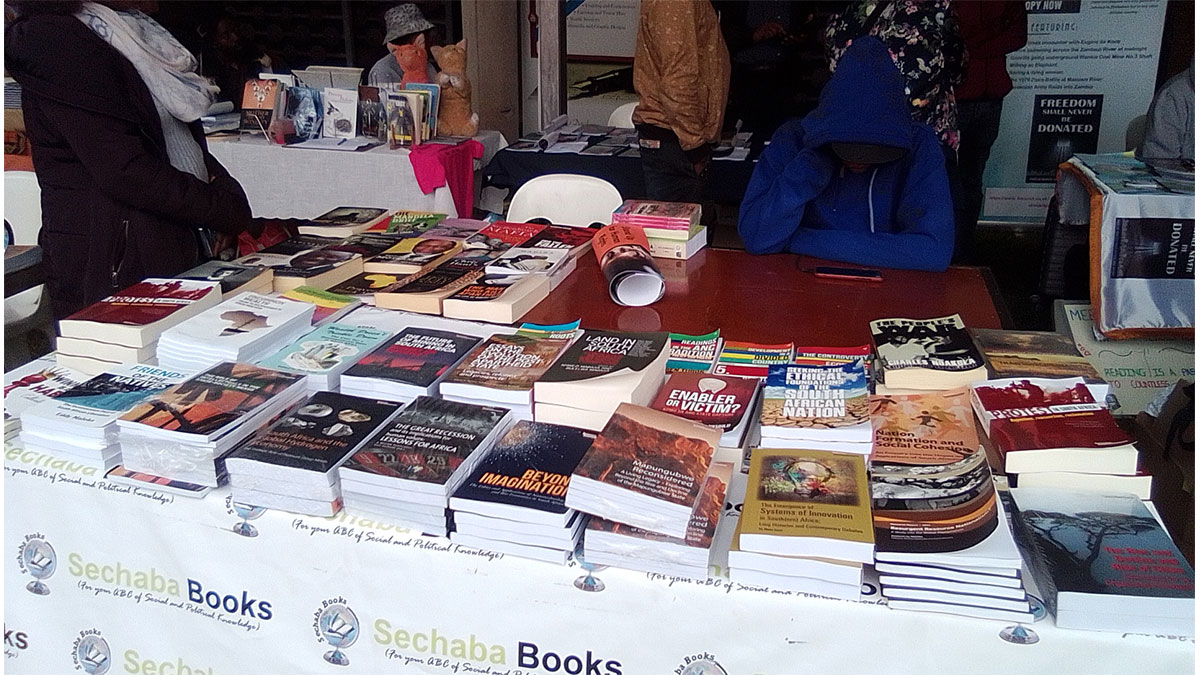Human Rights Festival at Con Hill much more than a festival
A Lot of thinking aloud, display of locally made goods and local cuisine were part of this annual festival, besides of course music.
By Edward Tsumele, CITYLIFE/ARTS Editor
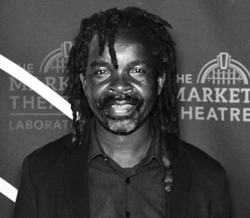
When I arrived at Con Hill on Saturday 25 March, 2023 to attend various festivities taking place in the precinct during the Human Right Festival at mid-day, it was drizzling outside. In fact it has been drizzling since Friday evening.
I joked to someone I know that in Africa when it rains when often say that it is a blessing, but that day it did not look like a blessed day as festival goers either had umbrella or drenched in rain. As I made my way inside I however came face to face with several entrepreneurs who had laid out tables selling anything from fashionable designer clothes, hand-made bangles, earrings to food vendors.
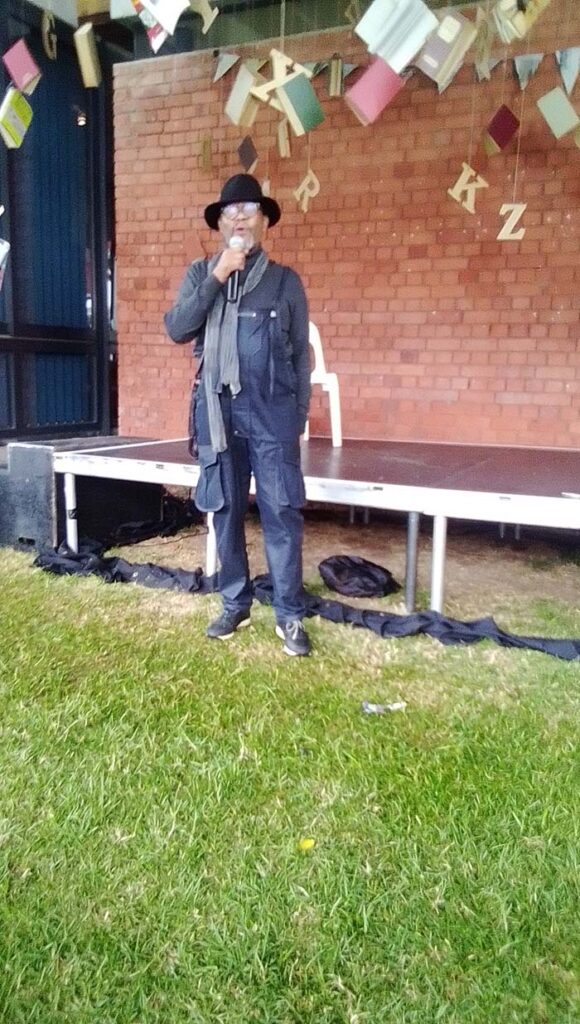
They defied the Rain gods to be at the festival come rain or sunshine. It was a market to marvel at locally made clothes. It was actually the allure of the food stalls that attracted my attention instantly once I was in the area. You could smell a mosaic of all South African food menus at one place. I started getting hungry even though till that time I was fine.
I was not happy that I did not have my bank card with me. Neither did I have cash. Why did I not think about this? I asked myself. I then moved on and surveyed the stalls that were promoting the values of this civil organisation or that. The ranged From those creating climate change awareness to those promoting media freedom and democracy.
It became clear that the Human Rights Festival is more than just a festival where one goes to chill. It is a place that is more than just a festival. I moved on and entered the Women’s jail section’s courtyard and came face to face with a book fair promoting the works of independent publishers and book traders. Well known publisher and former diplomat Saul Molobi was the programmes director.
Book traders were displaying their books mainly by self-published authors, and encouragingly there was a number of books on display written by child authors, some as young as 11, who spoke confidently about why they published their books.
These young ones are clever these days. I had no option but to admit. Their thoughts are deeper than what we think of them believe you me. I hung around this book fair section longer that I intended to do because what came out of the speakers’ brains and mouths was something interesting and worth listening to.
Broadcaster-turned author and publisher Thabiso Sikwane spoke about her newly published children’s book. She explained that she did not publish this book simply because she wants to earn money from its sales. It was because she did not want the young ones to experience what she did when she went to a then all white school, becoming the only black girl in a sea of white children. She felt alienated and almost drowned in a swimming pool as she did not know a single English word and could not confine to any of the swimming instructors and she took almost a fatal plunge. “For six years I did not want to go near that swimming pool,” she said.
I was embrace by child author, 11 year old Siyavuya Macebe who penned a book about school bulling and spoke intelligently about the issue.
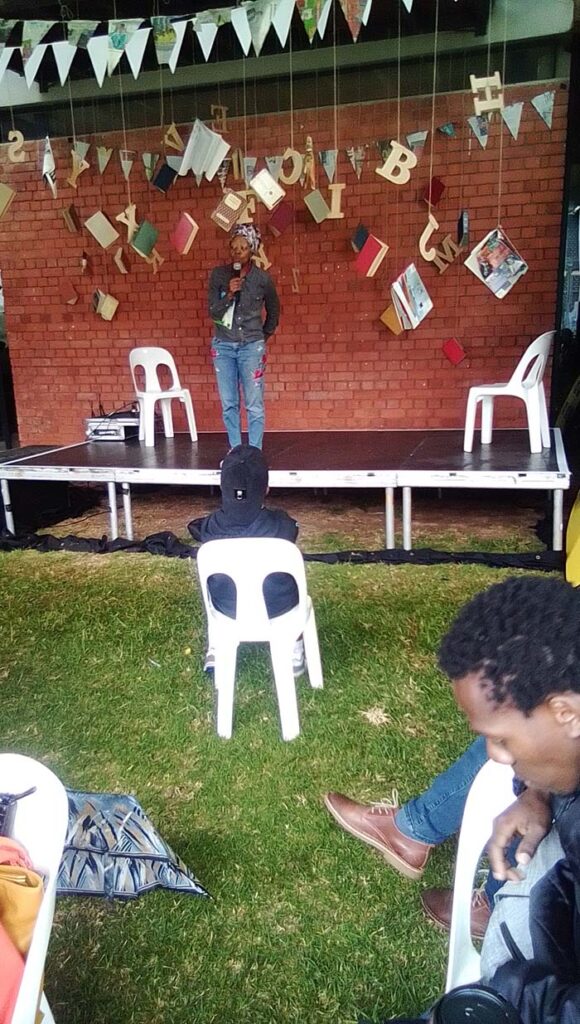
Molobi spoke about the politics of the publishing industry in South Africa and how it remains untransformed. Academic and author Leslie Dikeni spoke about the lives of writers and artists and how it is a lonely business. He said often good and deep writing comes from such creators who have time to think and thinking often demands a lot from a writer or artist. He gave an example of Gerald Sekoto, with whom he lived while he was studying in Paris while Sekoto was painting and how Sekoto suffered to create the kind of work that everybody in contemporary South Africa is after collecting. The same fate befell Lewis Nkosi who spent most of his time before coming home a few years before he passed on. He said this to illustrate the fact that thinking and writing is sometimes a painful and lonely process that artists have to endure before their works have a timeless relevance to society.
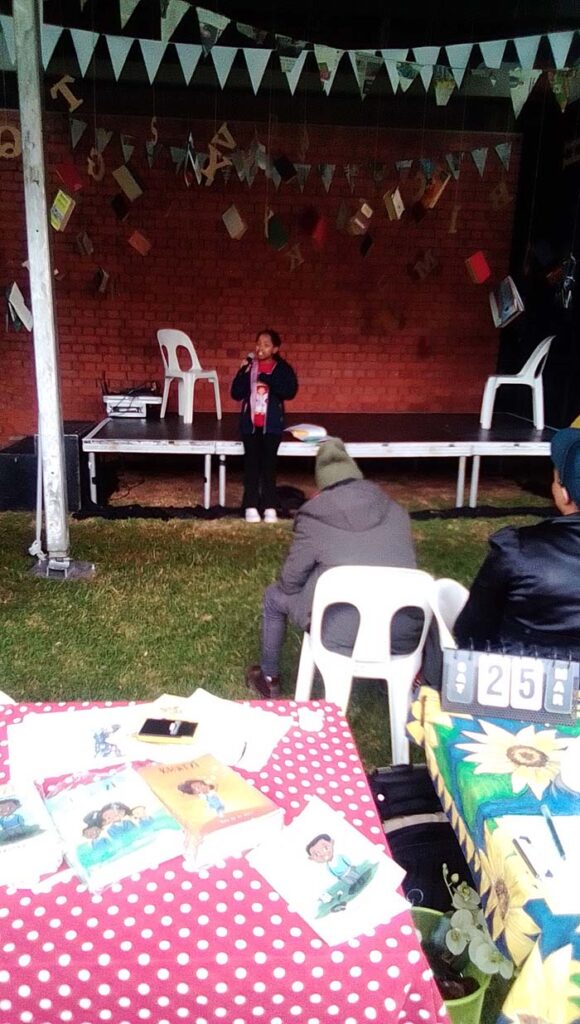
He explained that his books which are framed conceptually are there to achieve timeliness and not instant fame or recognition for him. Books and ideas must transform society, but often market forces shape the way a writer writes and that often results in books produced to sell and to achieve instant fame and financial comfort, and not to transform society.
The festival wound up yesterday, March 26, 2023.










